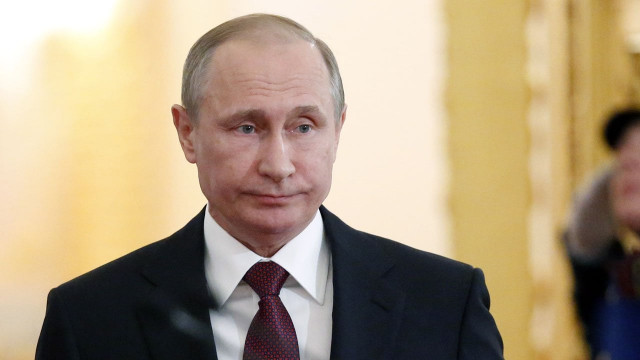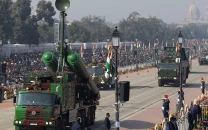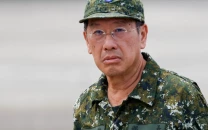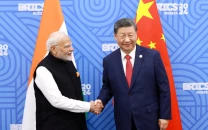How US should react to Putin’s nuclear threats
America cannot allow nonproliferation efforts to fall, given tensions over nuclear programs in other countries

Russian President Vladimir Putin. PHOTO: AFP
If true, the emergence of this new capability could have serious consequences for US - Russian bilateral relations and implications for nuclear nonproliferation efforts worldwide.
Trump tells Putin more steps needed to scrap North Korea nuclear program
Nuclear analysts rushed to dissect the grainy video of the new technology shown in Putin’s address. Some claimed that the new system could be a ruse intended for promotional campaign purposes. Others wondered why there appeared to be conflicting records of traces of radioactive particles that nuclear weapons tests leave in the atmosphere – raising questions about the timeframe in which Putin claims the system was created and the current stage of its development.
But without more technical information on this missile, it’s difficult to determine the truth of Putin’s boasts. However, the creation of an entirely new nuclear weapon further complicates already-tense US - Russian relations. In 2010 both countries signed the New START Treaty – a bilateral agreement to reduce the size of their nuclear arsenals and limit the number of deployed weapons.
Russia to build nuclear power plant in Sudan
New START was intended to be just that – a new start for the relationship between Russia and America, as well as for global nonproliferation efforts. The two countries with the largest arsenals signaled to the world that the time had come to downsize and decommission these weapons. It preserved each country’s viable deterrent, keeping the limit on missiles large enough to dissuade their use in a combat scenario because the costs of starting and finishing that fight would be far too high.
The treaty even allows for the modernization of existing nuclear weapons to that end. But it complicates the creation of new technologies because of how they would be incorporated and counted under New START. Article V dictates that if either country creates“a new kind of strategic offensive arm,” then that country should raise the question of consideration to the Bilateral Consultative Commission that is in charge of implementing the treaty.
If the Russian government developed the new rocket without consultation, it could be seen as a violation of New START. The treaty is already on thin ice – especially after claims in 2016 of Russian noncompliance in reducing its arsenal to agreed-upon levels. If New START crumbled now, it would strike a blow to global nonproliferation efforts.
Putin visits Tehran for talks on Syria, nuclear deal
So how should Washington respond to Putin’s aggressive rhetoric?
First and foremost, American policymakers shouldn’t overreact – particularly before more information is available to craft informed decisions. Even with Russia’s new rocket, the United States retains control of one of the world’s largest stockpiles and most-advanced nuclear capabilities. Actually using the US arsenal in combat would result in devastating destruction on a much larger scale than in World War Two due to technological advances since then.
Washington’s nuclear deterrent threat is secure – but the intention was always and should always be to never use these weapons in combat. American policymakers must keep this core tenet in mind.
The United States is still the only nation in the world to have used nuclear weapons in battle – a decision that came with a terrible cost in Japanese lives. A nation that bears that burden must also be the staunchest advocates for nonproliferation.
When America throws its considerable weight behind any arms control agreement, it sends a powerful message of strength and resolution. This proved true of both the Biological Weapons Convention of 1972 that outlawed the production and use of biological weapons and the Chemical Weapons Convention of 1993 that prohibits the development and use of chemical weapons.
America cannot allow nonproliferation efforts to fall by the wayside – especially given current tensions over nuclear programs in other countries. President Donald Trump has frequently criticized the Iranian nuclear deal and adopted a confrontational stance with North Korea. This bravado is dangerous and Washington cannot afford another flashpoint if New START is abandoned.
If America neglected nonproliferation efforts, it would likely invite more nations to develop nuclear weapons. This could create widespread instability and, at worst, lead to Cold War-style conventional or nuclear arms races in an effort to balance one country’s capabilities against their neighbors. In spite of Putin’s boasts, lack of American resolve cannot be a chink in the armor of global nonproliferation.



















COMMENTS
Comments are moderated and generally will be posted if they are on-topic and not abusive.
For more information, please see our Comments FAQ